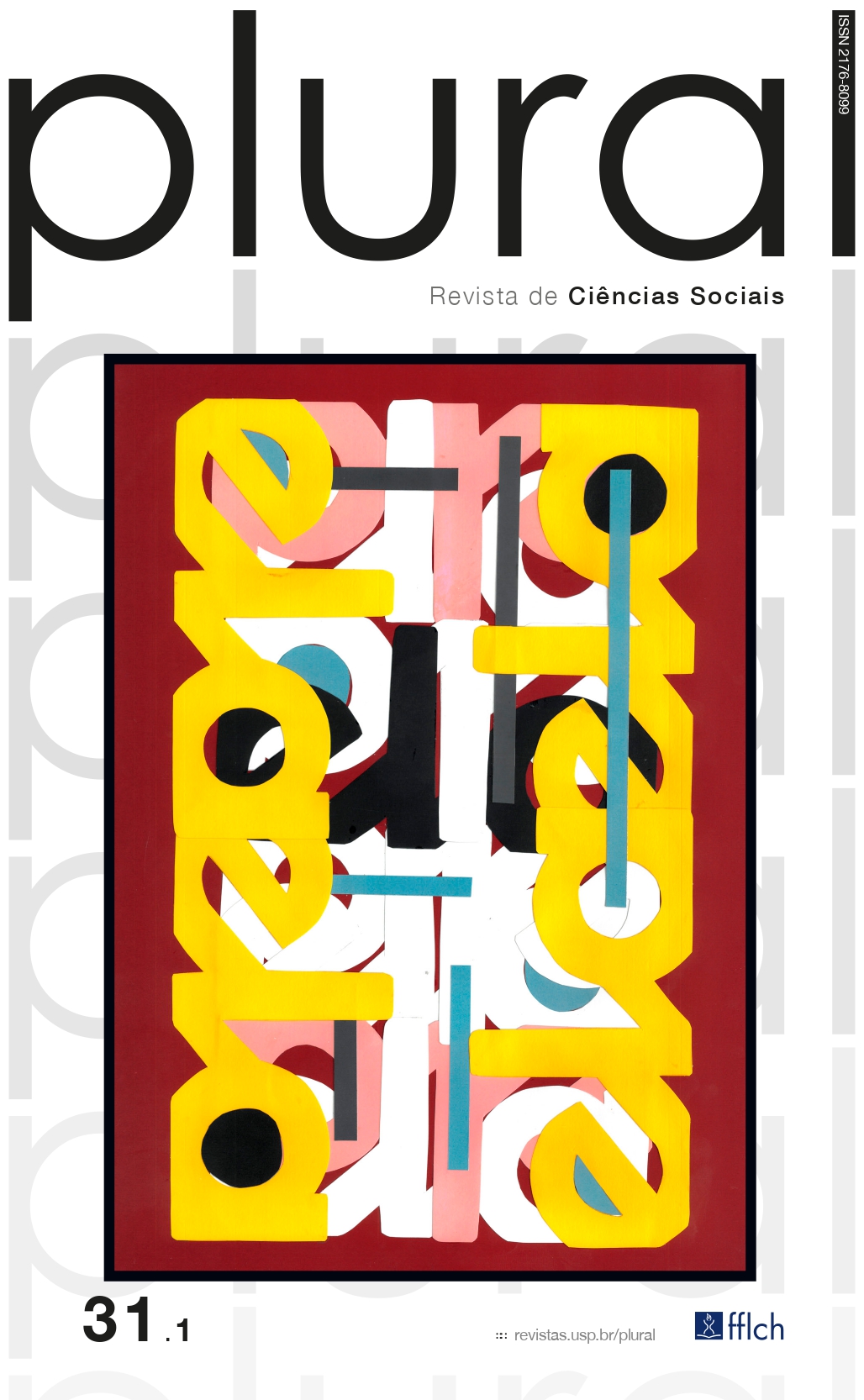Antifeminism as a political identity: the case of congresswoman Chris Tonietto
DOI:
https://doi.org/10.11606/issn.2176-8099.pcso.2024.222385Keywords:
antifeminism, gender issues, far-right, social media, parliamentary behaviorAbstract
The article discusses the relevance of gender issues in the political agitation of the extreme right in Brazil, addressing the virulent reaction against the advances of the feminist and LGBT+ movements. “Gender disorder” is a central theme in the agenda of a radical right that has unified under the leadership of Jair Bolsonaro, alongside corruption, criminal punitivism, gun ownership, climate denialism and others. For some of them, gender is the dominant issue – as in the case of ultraconservative Catholic congresswoman Chris Tonietto (PL-RJ). Analysis of her Instagram account shows the predominance of an anti-feminist agenda, in particular the fight against the right to abortion. Tonietto not only reacts when the issue appears on the public agenda, but also actively addresses the issue and invests in content aimed at forming activism against women's rights. It is a use of the parliamentary mandate with the objective, not exclusive, but important, of ideologically instructing. This is a characteristic of part of the new extreme right, one that presents Antonio Gramsci as its arch-enemy, but which has absorbed his lessons about the need to conquer hegemony – and how the dispute over values and representations of the social world is central to this process.
Downloads
References
ALVES, José Eustáquio Diniz. (2016), “A doutrina da igreja católica, o papa Francisco e o direito à contracepção”. Sexuality Policy Watch, online, 5 de março. Disponível em https://sxpolitics.org/ptbr/a-doutrina-da-igreja-catolica-o-papa-francisco-e-o-direito-a-contracepcao/5921. Acesso em 21 ago. 2023.
ALVES, José Eustáquio Diniz; CAVENAGHI, Suzana. (2017), “Igreja Católica, direitos reprodutivos e direitos ambientais”. Horizontes, nº 47, 2017, pp. 736-769.
ANSARI, Humayun; HAFEZ, Farid (2012). “Islamophobia: an introduction”. In: ANSARI, Humayun; HAFEZ, Farid (eds.), From the far right to the mainstream: Islamophobia in party politics and the media. Frankfurt: Campus Verlag.
BADINTER, Elisabeth. ([1980] 1985), Um amor conquistado. Rio de Janeiro: Nova Fronteira.
BENUTE, Gláucia Rosana Guerra et al. (2010), “Abortamento espontâneo e provocado”. Revista da Associação Médica Brasileira, vol. 55, nº 3, p. 322-7.
BITTENCOURT, Renato Nunes. (2021), “Moralidade líquida, lacração e cultura do cancelamento”. Cadernos Zygmunt Bauman, nº 27, p. 212-229.
BLAIS, Melissa; DUPUIS-DERI, Francis (2012). “Masculinism and the antifeminist countermovement”. Journal of Social, Cultural and Political Protest, vol. 11, nº1, p. 21-39.
BOLTANSKI, Luc. (2004), La condition fœtale. Paris: Gallimard.
CESARINO, Letícia. (2022), “Tropical Trump”. In: GOLDSTEIN, Donna B.; DRYBREAD, Kristen (eds.). Corruption and illiberal politics in the Trump era. New York: Routledge.
COHEN, Jean L. (1997), “Rethinking privacy: autonomy, identity, and the abortion controversy”. In: WEINTRAUB, Jeff; KUMAR, Krishan (eds.). Public and private in thought and practice. Chicago: The University of Chicago Press.
COLARES, Karen (2023). Efésios 5,21-33: análise ético-feminista da retórica de submissão da mulher nas obras da Editora Fiel. Tese de doutorado em Teologia. Belo Horizonte: FAJE.
DOUGLAS, J. Susan; MICHAELS, W. Meredith. (2007). “The new momism”. In: O'REILLY, Andrea (ed.). Maternal theory: essential readings. Toronto: Demeter Press.
DWORKIN, Ronald. ([1993] 2003), Domínio da vida. São Paulo: Martins Fontes.
FALUDI, Susan (1991). Backlash: the undeclared war against American women. New York: Crown.
FONTENELLE, Alana. (2023), A maternidade é política: mobilização da maternidade por candidatas no Instagram (2021-2022). Tese (doutorado em Ciência Política). Brasília: Universidade de Brasília.
HIMMELSTEIN, Jerome (1986). “The social basis of antifeminism: religious networks and culture”. Journal for the Scientific Study of Religion, vol. 25, nº. 1, p. 1-15.
KAPLAN, Francis. (2008), L’embryon est-il un être vivant? Paris: Le Félin.
KALM, Sara; MEEUWISSE, Anna (2023). “The moral dimension of countermovements: the case of anti-feminism”. In: SEVELSTED, Anders; TOUBØL, Jonas (eds.), The power of morality in movements: civic engagement in climate justice, human rights, and democracy. Cham: Springer.
LÊNIN, Vladimir I. (1978), Que fazer? São Paulo: Hucitec.
LINDSAY, Angus (2022). “Swallowing the black pill: involuntary celibates’ (Incels) anti-feminism within digital society”. International Journal for Crime, Justice and Social Democracy, vol. 11, nº 1, p. 210-24.
MANSBRIDGE, Jane; SHAMES, Shauna L. (2008). “Toward a theory of backlash: dynamic resistance and the central role of power”. Politics & Gender, vol. 6, nº 2, p. 623-34.
MARIANO, Ricardo. (2011), “Laicidade à brasileira: católicos, pentecostais e laicos em disputa na esfera pública”. Civitas, vol. 11, nº 2, p. 236-58.
McCUBBINS, Mathew D.; SCHWARTZ, Thomas. (1984), “Congressional oversight overlooked”. American Journal of Political Science, vol. 28, nº 1, p. 165-179.
MENDONÇA, Amanda; MOURA, Fernanda. (2021), “Mais empoderada que eu?Antifeminismo e desdemocratizaçãono Brasil atual”. Communitas, nº 9, p. 9-23.
MIGUEL, Luis Felipe. (2016), “Da ‘doutrinação marxista’ à ‘deologia de gênero’”. Direito & Práxis, nº 15, p. 590-621
MIGUEL, Luis Felipe. (2021), “O mito da ‘ideologia de gênero’ no discurso da extrema-direita brasileira”. Cadernos Pagu, nº 62, pp. 1-14.
MIGUEL, Luis Felipe. (2022), Democracia na periferia capitalista. Belo Horizonte: Autêntica.
MIGUEL, Luis Felipe. BIROLI, Flávia; MARIANO, Rayani. (2017), “O direito ao aborto no debate legislativo brasileiro”. Opinião Pública, vol. 23, nº 1, pp. 230-60.
MUDDE, Cas (2019). The far right today. London: Polity Press.
NOONAN Jr., John T. (1967), “Abortion and the Catholic Church”. Natural Law Forum, nº 126, p. 85-131.
PATEMAN, Carole. (1988), The sexual contract. Stanford: Stanford University Press.
PHILLIPS, Anne. (1995). The politics of presence. Oxford: Oxford University Press.
SANDERS, Rebecca; JENKINS, Laura Dudley (2002). “Control, alt, delete: patriarchal populist attacks on international women’s rights”. Global Constitutionalism, vol. 11, nº 3, p. 401-29.
SEMÁN, Pablo (2023). “La piedra en el espejo de la ilusión progresista”. In: SEMÁN, Pablo (coord.), Está entre nosotros. Buenos Aires: Siglo Veintiuno.
SEMPRE FAMÍLIA. (2018), “Quem é Chris Tonietto, a jovem católica que já enfrentou um ministro do STF e chega à Câmara em 2019”. Sempre Família, online, 6 de nobembro. Disponível em https://www.semprefamilia.com.br/blogs/blog-da-vida/quem-e-chris-tonietto-a-jovem-catolica-que-ja-enfrentou-um-ministro-do-stf-e-chega-a-camara-em-2019. Acesso em 3 abr. 2023.
YISHAI, Yael. (1993), “Public ideas and public policy”. Comparative Politics, vol. 25, nº 2, pp. 207-28.
Downloads
Published
Issue
Section
License
Copyright (c) 2024 Política de direitos compartilhados

This work is licensed under a Creative Commons Attribution-NonCommercial-ShareAlike 4.0 International License.
Ao submeter seu trabalho à Plural, o autor concorda que: o envio de originais à revista implica autorização para publicação e divulgação, ficando acordado que não serão pagos direitos autorais de nenhuma espécie. Uma vez publicados os textos, a Plural se reserva todos os direitos autorais, inclusive os de tradução, permitindo sua posterior reprodução como transcrição e com devida citação de fonte. O conteúdo do periódico será disponibilizado com licença livre, Creative Commons - Atribuição NãoComercial- CompartilhaIgual –, o que quer dizer que os artigos podem ser adaptados, copiados e distribuídos, desde que o autor seja citado, que não se faça uso comercial da obra em questão e que sejam distribuídos sob a mesma licença (ver: http://www.creativecommons.org.br/).







